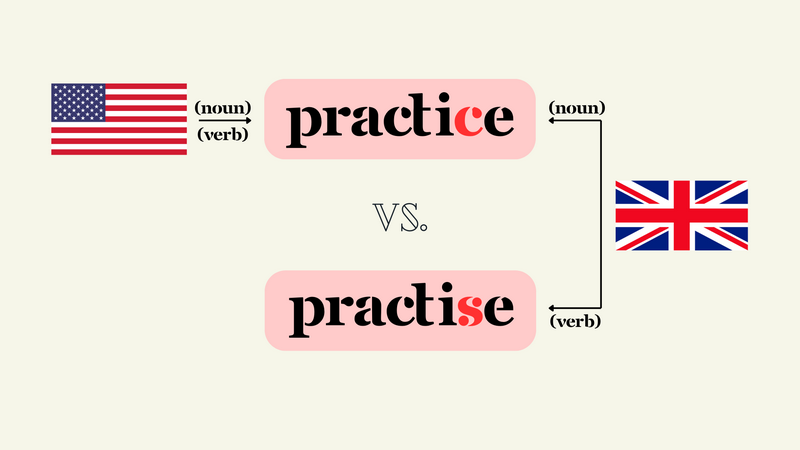Practice and practise are two confusing words with the same pronunciation, /ˈpræk.tɪs/, but different spellings and different meanings. This is one of those tricky spelling situations where British and American English differ.
In American English, it’s simple – “practice” is always spelled with a C, regardless of whether it is a noun or a verb. For example:
- I practiced baseball every day. (verb)
- He has piano practice every evening. (noun)
However, British English distinguishes between the noun and verb forms. Here are the key rules to remember:
Practice as a Noun
Practice with a C is always a noun. Practice refers to the procedure or the act of repeatedly doing something. This can be:
1. Habit or tradition
- It’s a common practice to tip the waiter.
2. Training in a profession
- I applied for the job at the new dental practice.
3. Improve a skill
- I go to football practice every day
Practise as a Verb
Practise with an S is a verb. If you practise something, then you’re performing the action. Again, this can be a habit or tradition, training in a profession, or repeatedly doing something in order to improve a skill.
For example:
- She practises her religion.
- He practised as a doctor for 9 years.
- I need to practise my English.
Remember: In American English, practice with a C is also used as a verb.
For example:
- You should practice your presentation before delivering it to the clients.
- The team practices their soccer plays after school.
- I need to practice my guitar skills before the concert.
The Key Takeaway
The spelling of “practice” or “practise” differs between American and British English. In US English, “practice” is always spelled with a C, whether used as a noun or verb. However, UK English distinguishes between the noun form (“practice” with a C) and verb form (“practise” with an S).
Time for a Quiz!
Take this little quiz to see how well you understand the proper usage of “practice” versus “practise”!



